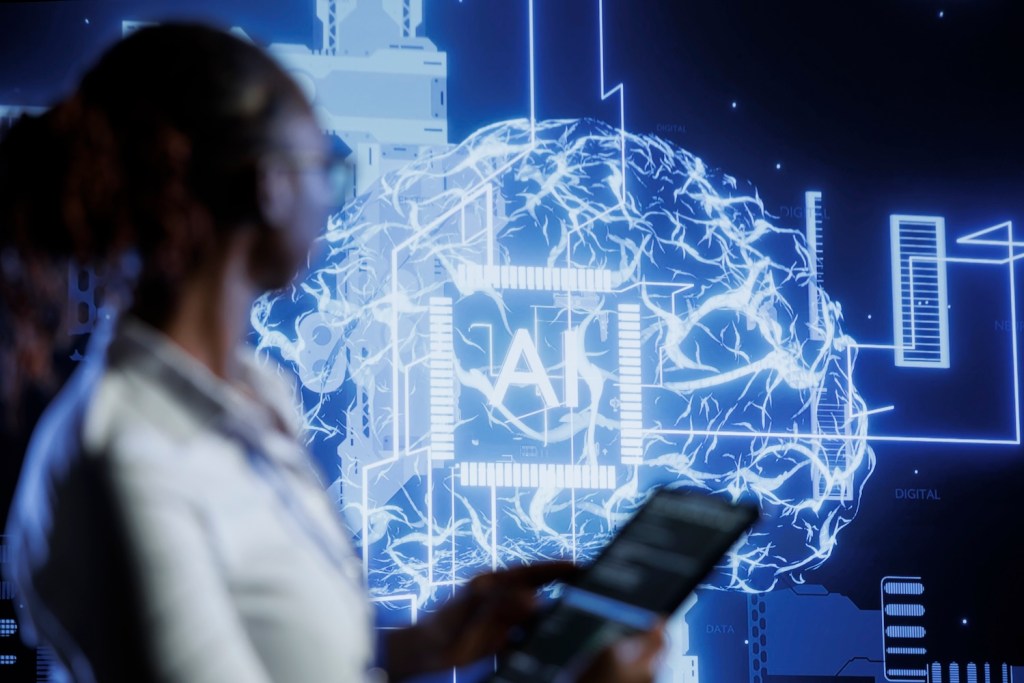Updated: Dec 14, 2024 By: Marios

Artificial Intelligence (AI) has revolutionized industries and workplaces, reshaping how we think about automation, creativity, and decision-making. One of the most transformative developments in the AI landscape is Agentic AI.
This emerging branch of AI is set to redefine the future of work by bringing autonomy, adaptability, and proactivity to machine intelligence. Unlike traditional AI systems, which rely heavily on predefined instructions, Agentic AI operates with a level of independence and purpose, akin to how humans approach tasks.
Agentic AI represents a pivotal step in the evolution of technology, combining cutting-edge advancements in machine learning, natural language processing, and decision-making frameworks. It offers an unparalleled capacity to adapt to complex environments, understand nuanced objectives, and operate in a goal-oriented manner, blurring the lines between human intelligence and machine efficiency.
As industries across the globe grapple with the increasing pace of technological change, the emergence of Agentic AI raises pressing questions about its potential, challenges, and implications for the workforce.
In this blog post, we will explore what Agentic AI is, its key characteristics, and the ways it will impact the workplace. By understanding its capabilities, benefits, and challenges, organizations and individuals can better prepare for this paradigm shift in how work is performed, coordinated, and valued.
What Is Agentic AI?
At its core, Agentic AI refers to AI systems that can act independently to achieve specific objectives without requiring constant human intervention. These systems are designed to:
- Understand Context: Analyze complex environments and adapt their actions based on situational nuances.
- Set Goals: Define intermediate and long-term objectives aligned with overarching goals.
- Act Proactively: Initiate actions to address potential challenges or opportunities.
- Learn Continuously: Improve performance over time by incorporating new data and experiences.
Agentic AI draws inspiration from human agency—our ability to make decisions, set goals, and execute plans. By replicating these traits in machines, Agentic AI moves beyond the reactive nature of traditional AI to become a collaborator capable of managing tasks with minimal oversight. Its independence doesn’t only save time and resources but also facilitates the execution of intricate operations in dynamic and unpredictable environments.
These systems often leverage a combination of artificial neural networks, reinforcement learning, and cognitive computing. They are not merely tools; they are problem solvers that evolve with experience, continuously refining their strategies and approaches. This capacity makes them indispensable in scenarios requiring agility and innovation.
Key Characteristics of Agentic AI

To understand the potential of Agentic AI, it’s essential to delve into its defining characteristics:
- Autonomy
Agentic AI systems operate without requiring step-by-step instructions. They possess the computational intelligence to interpret objectives and independently decide how to achieve them. This autonomy enables these systems to respond to real-time changes with minimal human intervention. - Goal-Oriented Behavior
These systems prioritize tasks based on predefined or dynamically generated goals, ensuring efficient use of resources and alignment with broader strategies. By breaking down overarching goals into manageable subtasks, Agentic AI can optimize workflows and achieve high efficiency. - Contextual Awareness
By analyzing environmental data, Agentic AI can adapt its actions to fit the context, whether it’s navigating an unpredictable market or managing a complex supply chain. This contextual awareness is bolstered by real-time analytics, enabling quick and effective responses to dynamic conditions. - Proactivity
Unlike reactive systems, Agentic AI identifies potential issues and opportunities before they arise, taking preemptive actions to ensure optimal outcomes. This anticipatory behavior reduces downtime, mitigates risks, and uncovers hidden opportunities in operations. - Ethical Decision-Making
Advanced Agentic AI incorporates ethical considerations into its decision-making processes, ensuring compliance with societal values and organizational policies. This aspect is critical in sensitive industries such as healthcare, finance, and governance, where ethical lapses can have severe consequences.
How Agentic AI Will Change Work
The introduction of Agentic AI is expected to have a profound impact on the workplace. Here’s how:
1. Automation Beyond Repetition
Traditional AI excels at automating repetitive and rule-based tasks. Agentic AI goes further by handling complex, dynamic tasks that require judgment, such as:
- Strategic planning
- Customer relationship management
- Incident response in real-time systems
This expanded scope of automation will free employees from mundane activities, enabling them to focus on higher-level responsibilities that require creativity and critical thinking. By automating even semi-structured tasks, Agentic AI will redefine the scope of what’s possible in process automation.
2. Enhanced Decision-Making
Agentic AI systems can process vast amounts of data and derive actionable insights in real time. For example:
- In finance, Agentic AI can analyze global economic trends and recommend investment strategies tailored to market conditions.
- In healthcare, it can suggest personalized treatment plans by synthesizing patient data with the latest medical research and best practices.
By serving as a trusted advisor, Agentic AI will empower professionals to make better-informed decisions. This capacity to handle decision-making complexities will enable businesses to operate with greater agility and foresight.
3. Dynamic Team Collaboration
Agentic AI will seamlessly integrate into teams as virtual collaborators. These systems can:
- Assign tasks based on team members’ strengths and availability.
- Monitor project progress and suggest adjustments to meet deadlines.
- Mediate conflicts by providing data-driven perspectives.
The result is a more cohesive, efficient, and adaptive workforce. In hybrid work settings, Agentic AI can bridge communication gaps, ensuring alignment across geographically dispersed teams.
4. Redefining Roles and Skills
As Agentic AI takes over routine and semi-complex tasks, the definition of work will evolve. Key trends include:
- Upskilling: Employees will need to develop expertise in AI oversight, strategy formulation, and problem-solving.
- Creative Focus: Roles that prioritize creativity, empathy, and human connection will gain prominence.
- AI Collaboration: New positions, such as AI trainers and ethicists, will emerge to guide Agentic AI systems. Additionally, cross-functional skills will be in high demand as employees integrate AI into traditional workflows.
5. Personalized Work Environments
Agentic AI can customize workflows and tools to match individual preferences and productivity styles. For instance:
- Adaptive scheduling tools can optimize meeting times based on participants’ availability and energy levels.
- Personalized learning platforms can recommend career development resources tailored to employees’ goals.
- Real-time feedback systems can help employees refine their skills and strategies based on performance metrics.
Potential Challenges and Ethical Considerations
While Agentic AI offers significant benefits, its implementation also raises challenges that must be addressed:
1. Accountability
When autonomous AI systems make decisions, determining responsibility for outcomes can become complex. Organizations must establish clear accountability frameworks to ensure transparency and trust. Liability issues must be carefully delineated to address unintended outcomes.
2. Bias and Fairness
Agentic AI systems learn from data, which may contain biases. Continuous monitoring and auditing are necessary to prevent discrimination and ensure equitable outcomes. Organizations must prioritize data diversity and fairness to minimize systemic inequities.
3. Job Displacement
The automation of complex tasks could lead to job displacement in certain sectors. Policymakers and businesses must collaborate to create reskilling programs and safety nets for affected workers. This transition period will be critical in maintaining societal balance and workforce stability.
4. Ethical Decision-Making
Ensuring that Agentic AI aligns with ethical standards requires robust guidelines and oversight mechanisms. Decisions involving sensitive issues, such as resource allocation or privacy, must be carefully regulated. Ethical audits and AI governance frameworks will play a pivotal role.
5. Security Risks
The autonomy of Agentic AI makes it a potential target for cyberattacks. Safeguarding these systems requires advanced security protocols and continuous monitoring. Organizations must invest in AI-specific cybersecurity measures to prevent malicious exploitation.
Preparing for the Future
To harness the potential of Agentic AI while mitigating risks, stakeholders must take proactive measures:
- Education and Training
- Integrate AI literacy into educational curricula to prepare future generations for AI-driven work environments.
- Offer professional development programs focused on AI collaboration, oversight, and management. Lifelong learning will become a cornerstone of career growth.
- Policy Development
- Establish legal and ethical frameworks to govern the use of Agentic AI. Policymakers must address emerging challenges with forward-thinking legislation.
- Encourage international collaboration to standardize regulations and promote responsible AI development.
- Organizational Adaptation
- Redesign workflows to integrate Agentic AI effectively. Businesses must foster adaptability to stay competitive.
- Foster a culture of innovation and continuous learning to empower employees in an AI-centric world.
- Research and Innovation
- Invest in R&D to improve the capabilities and safety of Agentic AI systems. Collaborative efforts between academia, industry, and government will be key.
- Collaborate across industries to share best practices and insights, ensuring ethical and effective AI use.
Conclusion
Agentic AI represents a monumental leap forward in the evolution of artificial intelligence. By enabling machines to act autonomously, adapt to changing environments, and proactively pursue goals, it has the potential to transform the way we work. From enhancing decision-making to redefining roles, Agentic AI offers immense opportunities for growth and efficiency.
However, its adoption also requires careful consideration of ethical, social, and security challenges. By preparing for these changes today, organizations and individuals can unlock the full potential of Agentic AI, paving the way for a future where human creativity and machine intelligence work hand in hand to achieve remarkable outcomes.
As we stand on the cusp of this transformative era, the journey to harmonize human and artificial agency promises to be one of the defining narratives of our time.



